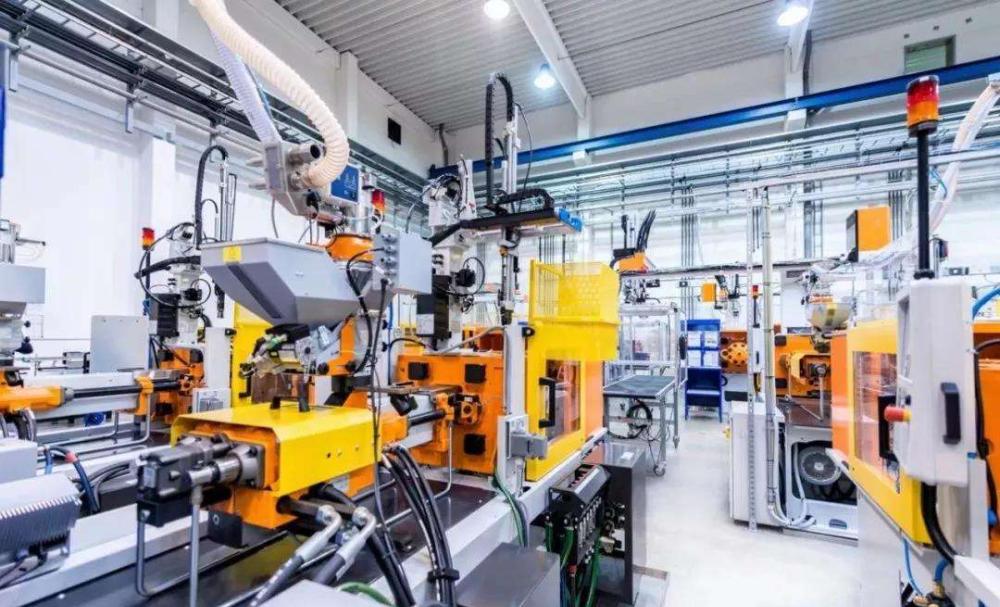Although Japan's land area is not large, the total economic volume is not as good as China, but its local manufacturing development level is very high, and even some high-precision machinery and equipment can monopolize China for 30 years, which kind of equipment is so important?

Nowadays, domestic factories generally use intelligent and mechanized equipment production, during which a large number of industrial robots will be used, but industrial robots are not casually able to drive to complete various operations, which is inseparable from a part called harmonic reducer.
This kind of thing is simply like the joint tendon of our human body, relying on this kind of "industrial tendon" to involve the mechanical arm of the industrial robot for various operations.
This kind of thing is not big, small is not small, not remarkable, but it can determine the accuracy and strength of the operation of industrial robots, so it is still very important.
Unfortunately, since Japan successfully developed a harmonic reducer in 1981, it has formed a strict monopoly on the Chinese market.
Its local sumitomo, Xinbao, Hamenak and Botsco and other enterprises have joined forces to control the market transaction price, raising prices many times within a year, and earning a large amount of procurement funds from Chinese companies.
Not only that, the attitude of Japanese companies is also very arrogant, once around 2008, domestic procurement of harmonic reducers has encountered 2 infuriating things.
When the first domestic manufacturer went to Japan to purchase a reducer, the head of The Japanese Sumitomo Company had a rather brutal attitude towards Chinese buyers.
He spoke very quickly when introducing the details and functions of the product, and the words were very professional, when the Chinese buyer asked to introduce it again slowly and clearly, the Japanese person in charge walked away without a word, with an attitude of loving to buy or not to buy.
The second time, when another Chinese company found Hamonak to purchase a reducer, it did not even see the face of the main person in charge, but a warehouse equipment management team leader was receiving.
The two procurement experiences have made many Chinese enterprise leaders very indignant but helpless, after all, Japan has monopolized China for 30 years, and the strength base is very strong.
Among them, even Hamenak has won 82% of the global harmonic reducer market share in one go.
However, things will always turn around, in 2011, because they could not stand the situation of Japanese companies monopolizing harmonic reducers at high prices, domestic industrial manufacturers began to fight back.
One of the most prominent is a company from Suzhou, Jiangsu Province, called Green Harmonics, which successfully achieved a breakthrough in the second year of deciding to develop domestic harmonic reducers.
In March 2011, the person in charge of green harmonics brought the first self-developed harmonic reducer in China to an industrial equipment appraisal institution in Nanjing for verification.
The results are very exciting, the green harmonic production of the reducer, in one breath passed the application testing standards of a variety of domestic industrial equipment.
In the words of the person in charge of green harmonics at the time, "There is finally a domestically produced equipment to replace Japanese goods."
After the launch of such products, the green harmonic company has regained 62% of the domestic market share from Japanese companies in less than 2 years, and even in the world, the green harmonic, which has only 4 years of research and development and production, has won 6.16% of the market.
In 2020, the smooth listing of green harmonics has become the second largest harmonic reducer giant in global shipments after Hamenak.
Interestingly, since then, Japan's harmonic reducer companies have quickly lost a large number of Chinese customers, and Sumitomo's annual revenue of the product has fallen by 5.8%.
In fact, not only the green harmonics continue to exert force in the field of industrial robots, but even the domestic home appliance giant Midea has also increased its investment scale in this field.
On November 23 this year, Midea wholly acquired all the shares of German industrial robot giant KUKA and quickly demanded that it be delisted in Germany.
Since then, KUKA, once known as the "four families" of industrial robots, has become a wholly-owned subsidiary of Midea.
This shows that domestic enterprises are constantly adding bricks and tiles in the field of industrial manufacturing, and the level of intelligent and mechanized industrial manufacturing in China will be further improved in the future.
Of course, although The country is a big industrial manufacturing country, but in individual high-end technology fields, China's strength still needs to be on par with Germany and Japan, so technology-based enterprises such as Midea and Green Harmonic still need to invest limited funds and talents in the research and development of high-end technology products.
In the future, will China, a big intelligent industrial country, become a smart industrial power? What do you think?